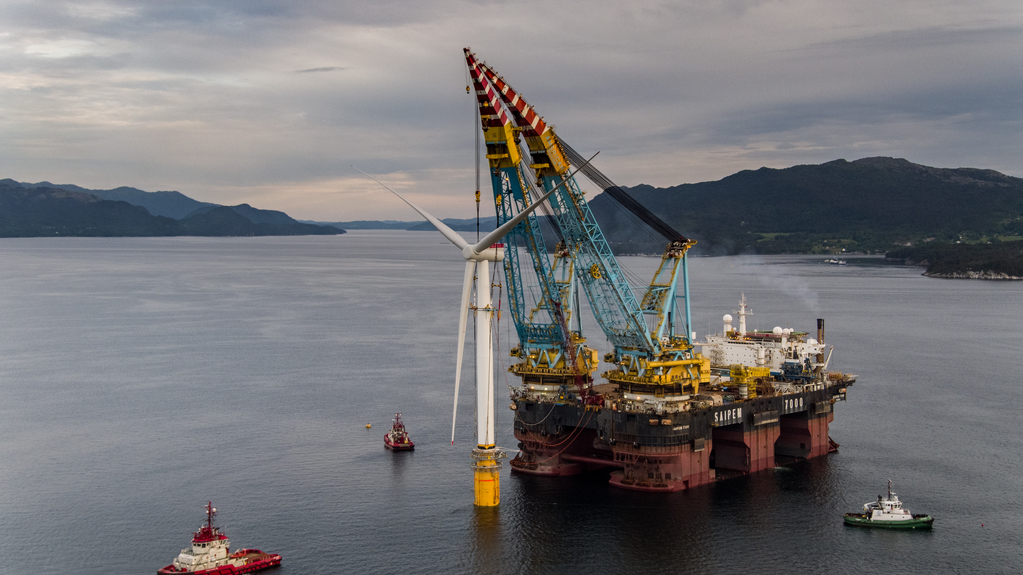The UK government is being “environmentally reckless” and not acting on the “tremendous economic opportunities” offered by new generation technologies like tidal and floating wind turbines, according to Labour’s shadow secretary for business, energy and industrial strategy (BEIS).
Rebecca Long-Bailey’s piece for LabourList followed chancellor Philip Hammond’s budget speech which was widely pilloried for not making reference to climate change, particularly in the wake of the recent IPCC report calling for “rapid, far-reaching and unprecedented change”.
“That isn’t just environmentally reckless. It is also throwing away an opportunity to rebuild our manufacturing towns, create hundreds of thousands of skilled jobs and bring down energy costs for households and business,” the shadow secretary said.
She went on to claim that emerging technologies like tidal stream and floating offshore wind both offer huge opportunities in the generation of clean electricity and for British firms, many of whom have predominantly domestic supply chains.
However the government is, in Long-Bailey’s words, “effectively cutting the tidal stream sector out of the UK’s energy future” after plans for the Swansea tidal lagoon project and others were scrapped in the summer due to concerns over value for money to the taxpayer.
Meanwhile governments like France, which launched preliminary studies into the technology earlier this year, and Canada which has identified almost 36GW of tidal energy potential and is pushing ahead with a number of projects with the help of firms from UK and Ireland.
“There is increasing evidence of British companies relocating to France and Canada, where government is more supportive – taking know-how, technology, economic value and jobs with them,” the Labour frontbencher said.
Describing “a similar story” for floating offshore wind, she argued that despite the deeper waters off Cornwall and the west coast of Scotland offering prime locations for floating wind, and a UK-wide supply chain that could deliver the necessary technology, “the UK government is choosing to kill off the floating wind sector”.
Only one of three floating solar arrays required to start generating electricity this month in order to receive subsidy support has so far achieved this. Power was generated from the 50MW Kincardine project on September 18, with full commissioning of the first turbine completed last month.
However, both the Dounreay Tri and Forthwind projects are on hold owing to delays in supply and achieving consent respectively. Developers for both have requested an extension to the deadline to resolve these issues – a call that was rejected by energy and clean growth minster Claire Perry in February.
Meanwhile, Long-Bailey cites the US, China and Japan – where over €1 billion (over £871 million) has been committed in five demonstration projects and one floating substation – as moving ahead of the UK.
In response, BEIS has pointed out that the UK is home to the first floating offshore windfarm, the 30MW Hywind project in Scotland which began generating in October 2017. This project is still proving to offer firsts for UK energy after the 1MW/1.3MWh ‘Batwind’ battery was added and brought online in July.
In spite of this, the Labour MP concluded by suggesting that Labour would support these technologies to usher in “a green jobs revolution” and support home-grown clean energy technology and the developers and manufacturers that work with it.
“This is not just because it is the right thing to do for the climate, but because of the tremendous economic opportunities from placing communities across the UK at the heart of a booming domestic and export industry. Every day this government remains in power is one these opportunities are thrown away,” she said.
BEIS has responded further by saying that it remains supportive of renewable electricity more broadly having confirmed that renewable electricity auctions will be held in 2019 and every two years from then on, with support worth up to £557 million each year.
On the emerging technologies discussed by Long-Bailey, the department claimed that these must reduce their costs if they are to play a longer-term role in decarbonisation. It cited the recent cost reductions to have occurred in fixed bottom offshore wind, which secured contracts from the government at record low prices in September 2017.
Discussions are said to be underway to find alternative support mechanisms, with the potential of “innovation Power Purchase Agreements” to be taken up, although few other details were available.
Despite these efforts climate change has remained high on the agenda since the budget, with Labour’s Seema Malhotra questioning chief secretary to the Treasury Liz Truss in the commons this week on the issue.
In response to accusations that the government was “rolling back the clock” by failing to make any new commitments while also reducing grants for electric vehicles and planning to remove subsides for small-scale generation, Truss fell back on the government’s fiscal position.
“Since 2010, we have reduced carbon dioxide emissions across the economy by 26% and across electricity generation by 47%. We are making sure that those technologies are competitive, so that they work well in the market, and so that we deliver lower prices to customers and lower levels of carbon dioxide in our atmosphere,” she said.
A BEIS spokesperson added: “The government is ensuring our renewables sector continues to thrive, backed by our Clean Growth Strategy and modern Industrial Strategy. By 2021 we’ll have invested over £2.5 billion in low carbon innovations.”






